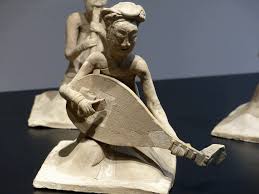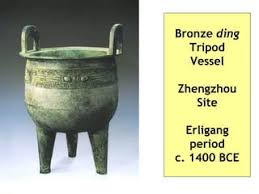Zhengzhou Hosts First Archaeological Exploration Skills Competition, Showcasing Diverse Talents

Zhengzhou: On the afternoon of October 26, the first-ever Zhengzhou Archaeological Exploration Skills Competition commenced at the Gangcui Ruins, located at the southeastern corner of the Dashi Gu City site. Participants, ranging from seasoned veterans to young newcomers, competed in field exercises, performing tasks such as drilling holes, observing soil samples, and sketching findings. Eleven teams from various cultural and archaeological institutions across Zhengzhou, including the city’s Archaeological Research Institute, participated in the event.
The competition saw contestants of all ages—from 24 to 59—demonstrating their skills in a race against the clock. The participants included experienced professionals with decades in the field and young archaeologists, some fresh out of university, each showcasing their expertise in the excavation pits.

The competition began with a theory exam on the morning of October 26 at Songshan Hotel, where participants underwent qualification checks and drew lots before sitting for the written test. The event is co-organized by the Zhengzhou Municipal Bureau of Cultural Relics and the Zhengzhou Federation of Trade Unions, with support from local archaeological and educational institutions. It aims to promote the craft of archaeology, highlight the skills of cultural relics professionals, and identify top talents for the national archaeological skills competition.
Director Gu Wanfang of the Zhengzhou Municipal Bureau of Cultural Relics, an experienced archaeologist, shared insights with the competitors before the field tests began. He emphasized the importance of understanding the broader historical context, creating spatial and temporal frameworks, and continuously reading to stay informed about both specific knowledge and overarching themes.
To ensure the competition’s professionalism, the organizing committee invited prominent experts such as Wei Xingtao, Deputy Director of the Henan Provincial Institute of Cultural Relics and Archaeology, and Jin Song’an, a professor at Zhengzhou University’s Archaeology and Cultural Heritage College, to serve as judges. They evaluated participants based on the number of exploration holes completed, the accuracy of soil sample placement, and the quality of the excavation diagrams and records.
Wei Xingtao explained the critical role of archaeological exploration in identifying the distribution and characteristics of cultural relics. “Exploration is an essential aspect of archaeological work and serves as a foundation for subsequent excavation and preservation efforts,” he noted, stressing that Zhengzhou’s archaeological work stands out in the Central Plains cultural heritage core region.
The competition featured over 40 participants, including four women. Among them was Li Xiaoyu, a 25-year-old from the Xinmi Cultural Relics Bureau. A graduate of Henan University, Li has worked on archaeological sites for two years. “I love the atmosphere of field archaeology,” she said, adding that while the work is tough, she enjoys the challenge and values the learning opportunities the competition provides.
Dubo Min, a 59-year-old veteran from the Xinzheng team, has spent over 30 years in archaeological exploration, contributing to major discoveries such as the Huzhuang cemetery and Han King’s Mausoleum. He expressed pride in his lifelong profession despite the physical toll it has taken. “This is my first time competing, and it feels great to see so many young people joining the field,” he remarked.
Wang Shixuan, a 24-year-old participant, shared that his passion for history fuels his interest in archaeology, while Gao Yue, a 37-year-old competitor, reflected on her mixed performance due to a recent shift from fieldwork to administrative tasks. “I need to practice more on-site,” she concluded.
The event, described as a vital part of the city’s archaeological “pre-exploration” model, aims to strengthen the skills of field archaeologists and promote the development of a Chinese-style archaeological system. By identifying and showcasing top talents, the competition seeks to encourage more individuals to pursue careers in cultural relics and archaeology, injecting new vitality into Zhengzhou’s cultural heritage sector.





